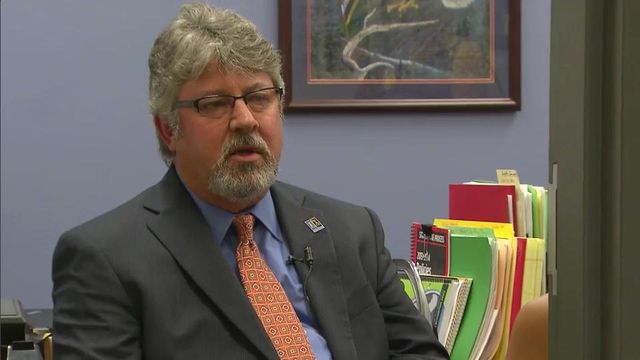Campbell law students mentor, mediate teen conflicts
School can be filled with drama and misunderstandings.
An East Millbrook Middle School eighth-grader, who asked to remain anonymous, knows that all too well. She and another girl “didn’t get along.”
“It was like he-she said stuff,” the girl said.
School officials picked up on the tension and asked the Campbell Law School Juvenile Justice Project to step in. Professor Jon Powell trains his law students to become facilitators.
“We focus on the harm that has happened to people, and then we try to understand how that harm can be addressed in positive ways,” Powell said.
The mediators come to the school and talk with the students involved in the conflict, separately then together. The conversation may be after a fight, but many times it's before a conflict escalates into one.
The goal is to get both parties to understand the root of the conflict so it doesn't build up again.
“We just worked it out that day,” the student said. The girls have been friends ever since.
Juvenile Justice Project mediated nearly 80 cases in the last school year. In nearly 10 years of the program, 95 percent of students who successfully completed mediation did not re-offend.
After mediation, there’s a noticeable difference in kids’ behavior, said Altonia Bransome, assistant principal at East Millbrook Middle in Raleigh.
“They’re a lot calmer,” she said of the students. “They’re not necessarily best friends every time, but they’re at peace.”
Juvenile Justice Project is funded completely through Campbell University’s Norman Adrian Wiggins School of Law. It's partnered with several Wake County middle and high schools.











